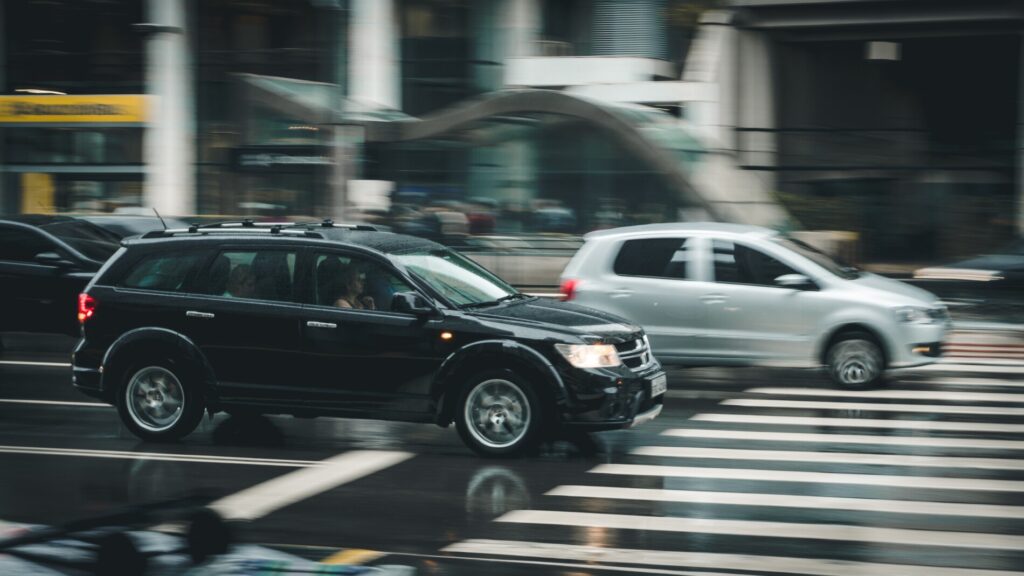Is New Jersey a No-Fault State? Who’s Liable in Car Accidents?
Who’s at fault when it comes to a car accident? The answer to this question can depend on the state in which you live and the laws that are in place. New Jersey is currently a “no-fault” state when it comes to car accidents, but that doesn’t mean you don’t have recourse if you or a loved one is catastrophically injured in an accident. No-fault laws, like those in New Jersey, have implications for car accident cases, so it’s important to work with a law firm who can help you get the compensation you deserve.
What is a “No-Fault State?”
No-fault laws in New Jersey dictate that those involved in a car crash, regardless of who is at fault, must file claims with their own insurance providers to cover their medical costs and lost wages. When you are involved in a crash, it is not necessary to prove that the other party was at fault to recover these costs.
In states without no-fault laws, drivers must prove that the other driver was more likely to be at fault to file a claim with their insurance company. In New Jersey, the claim is always filed with your insurance company. This applies to you even if you are a passenger in a vehicle involved in an accident.
Keep in mind that, regardless of whether you are in a no-fault state like New Jersey, property damage (to vehicles, etc.) is still covered by the insurance provider of the party who is deemed to be at fault in the accident. No-fault laws only apply to the medical bills incurred by each of the parties involved in the accident.
Required Auto Insurance in New Jersey
Every licensed motorist who operates a vehicle on New Jersey roads must carry the minimum amount of insurance coverage as defined by New Jersey law. Some types of coverage you can elect to carry include:
- Property Damage Liability: covers damage to property that you cause (you must carry at least $5,000).
- Personal Injury Protection (PIP): covers injuries you sustain from an automobile accident ($15,000 in coverage is required).
- Uninsured/Underinsured Motorist Coverage: provides coverage for you should you be involved in an accident with an uninsured motorist.
Opting Out of No-Fault
In rare cases, some motorists in New Jersey can opt out of the state’s no-fault policies. Should you choose to do this, you are able to seek compensation for medical injuries from the other driver’s insurance providers should you be able to prove that they were at fault for the accident.
Modified Comparative Negligence
New Jersey is also a modified comparative negligence state, meaning that you cannot seek compensation from the other driver if you are deemed to be more than 50 percent at fault in the accident. If you can prove that the other driver bears most of the fault, you can collect compensation based on the percentage to which they were deemed at fault.
Expenses Covered in an Accident
Being in a no-fault state means that you can be compensated for your injuries and medical bills regardless of who is at fault for the accident, but there are many other types of expenses that you can also be compensated for (either by your insurance company or that of the other driver). These include:
- Lost wages and other economic losses
- Pain and suffering
- Funeral costs and other death benefits
- Damage to your vehicle
- Damage to your personal property
What to Do After an Accident
What you should do after a car accident in New Jersey depends on the circumstances of the accident and who is at fault:
- If the other driver was at fault, file a claim with their insurance provider to recover property damage costs. If you were injured, file a claim with your insurance provider to recover medical costs.
- If you were at fault, file a claim with your insurance provider for both your medical costs and all property damage incurred.
- If you’re not sure who was at fault or who shares what percentage of the fault, file a claim with both your insurance company and the other driver’s insurance company. The insurance companies will send out insurance adjusters and determine who shares what percentage of the fault.
- If you were involved in an accident with an uninsured driver, file a claim with your insurance provider (if you have uninsured motorist coverage).
- If you are the victim of a hit and run, file a claim with your insurance provider.
What to Do in the Event of a Catastrophic Car Injury
Some car accidents are far worse than a simple fender bender. If you or a loved one suffered serious injury in a car accident, you may be entitled to damages above what your insurance company will offer. Regardless of the complexity of the crash or the number of vehicles involved, our attorneys can help you determine the best course of action and will fight for fair compensation for you and your family. When someone else’s negligence caused your injuries, we’ll prepare a comprehensive and compelling case to prove the other party’s liability and fault. Our attorneys are experienced and strong advocates for our clients.
Don’t let the crippling costs of a catastrophic car injury dictate the rest of your life. Get the compensation you deserve by contacting our trusted New Jersey car accident attorneys today.

Eichen Crutchlow Zaslow, LLP has purposely remained small in size, because it is important to us that we get to know our clients and their needs. Larger NJ injury firms may churn out case after case, but that’s not how we operate. Partners Barry Eichen, William Crutchlow, and Daryl Zaslow have created a firm with the resources to handle complex litigation, and a team that takes your case personally.
Find out more about Eichen Crutchlow Zaslow, LLP

